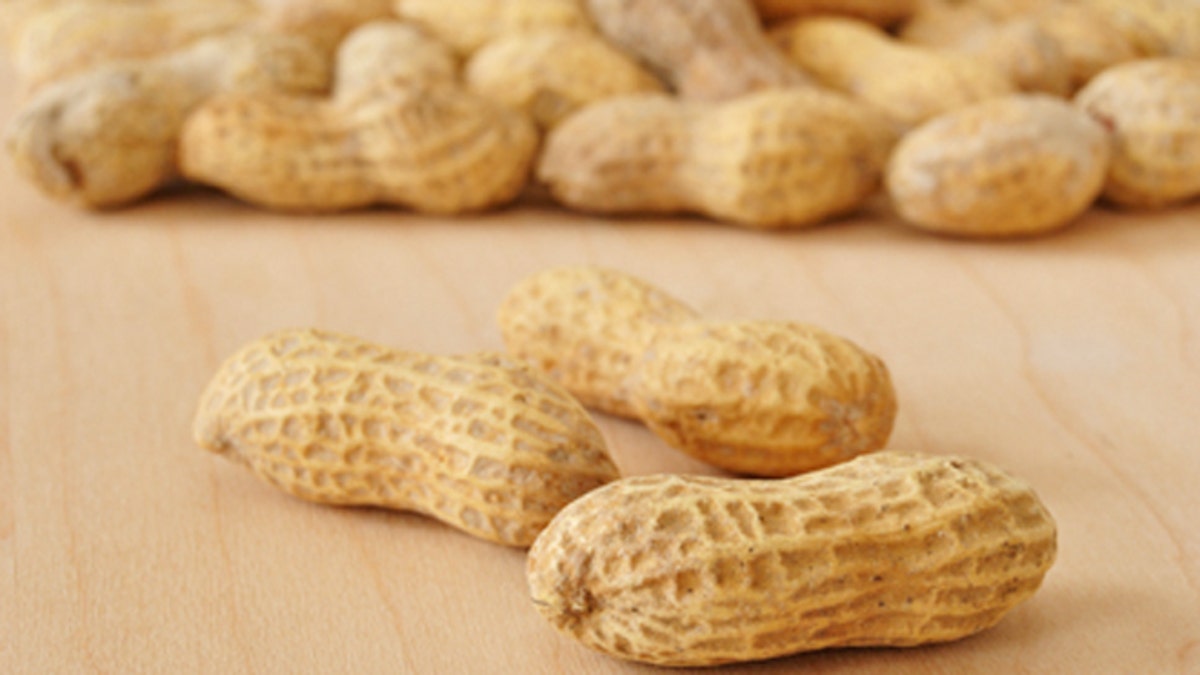
(iStock)
A new study has found that children at a predisposed risk of developing a peanut allergy may be able to reduce that risk by consuming the nut earlier in life.
Researchers at King’s College London studied 530 infants between ages 4 and 11 months. Babies were given skin tests to determine their risk of a peanut allergy, and high-risk babies were split into two groups. One group consumed at least 6 grams of peanuts, or a dissolvable peanut snack, on a regular basis while the other group was told to avoid peanuts.
At age 5, children were assessed with a supervised, oral food challenge with peanut. During a food challenge, a patient is fed a suspect food in measured doses by an allergist. After each dose, the patient is observed for signs of reaction.
Researchers found an overall 81 percent reduction of peanut allergy incidence in children who consumed peanuts regularly at an early age compared to the group that didn’t consume the nuts as babies. At age 5, about 17 percent of the children in the group that didn’t eat peanuts developed a peanut allergy, while only 3 percent in the consumption group developed the allergy.
The National Institute of Allergy and Infectious Diseases (NIAID), which is part of the National Institutes of Health (NIH), supported the study.
"Prior to 2008, clinical practice guidelines recommended avoidance of potentially allergenic foods in the diets of young children at [a] heightened risk for development of food allergies," Dr. Daniel Rotrosen, M.D., director of NIAID's Division of Allergy, Immunology and Transplantation said in a news release. "While recent studies showed no benefit from allergen avoidance, the [Learning Early About Peanut Allergy] study is the first to show that early introduction of dietary peanut is actually beneficial and identifies an effective approach to manage a serious public health problem."
Experts call the study a breakthrough because it shows a significant decrease in risk of peanut anaphylaxis.
“This is the first step, for peanuts, to prove that there is an easy way for pretty much anybody to try and prevent the development of peanut allergy in their kids, even in a high-risk group,” said Dr. Brian Schroer, a pediatric allergist at Cleveland Clinic Children’s.
Schroer, who was not involved in the study, said the next step is determining why this occurs. But if a baby has not shown any signs or symptoms of peanut allergy, parents can introduce the food to him or her, he said.
“This study was looking at very high-risk infants, which is not most kids. Most kids are even lower risk than all of the kids in this group. And in that sense, what it does show is that you can very safely introduce peanuts at home without having allergy testing done before you introduce peanuts,” he said.
Researchers will conduct a follow-up study asking participants to avoid peanut consumption for one year to determine whether continuous peanut consumption is required to maintain a child’s tolerance.
The research published in the New England Journal of Medicine.








































